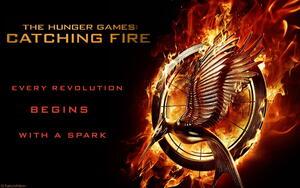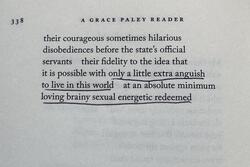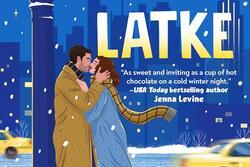Catching Fire this Hanukkah
Editors note: If you haven’t read The Hunger Games (or seen the movies), you’ll be safe from any major spoilers in this post from one of our Rising Voices Fellows. Be sure to check the JWA blog each Tuesday for a new post from our fellows—and check out the great educational resources provided by our partner organization, Prozdor.
Last Thursday night, I watched The Hunger Games: Catching Fire. This week, I’ll be lighting my menorah. Aside from the obvious fire connection (although hopefully the only thing “catching fire” in my house will be the candles), I’m struck by the similarities between the film and the holiday.
The Hanukkah narrative is one of rebels of a lower social class striking out against a cruel and dominating regime, a regime that sought to limit their freedom as a means to gain power, a regime that the upper classes tended to support as a means to gain status. Catching Fire, and, really, the entire Hunger Games trilogy are a variation of this narrative.
The rebellion against “the man,” as it were, is powerful and in my opinion should be the focal point of the holiday and of the movie. Hanukkah, at its best, is about the rebellion of a committed honest few over the power-hungry, freedom-squelching kingdom of King Antiochus. Catching Fire, at its core, is about the rebellion of the majority of citizens of Panem against the power-hungry, freedom-squelching kingdom of President Snow. Hanukkah is often framed as a victory of the strong morals of a minority over the questionable values of the dominant society. The fictional story of Panem is in many ways the opposite of this narrative; Katniss and Peeta’s disgust with the Capitol’s opulence is reflective of the sentiment of those in the districts, the people who are subjugated by the Capitol.
Catching Fire, as a novel and a film, is a critique of the commercialization of every aspect of modern life—the televised Hunger Games are used as a means for those in power to control the lives of the majority of Panem’s citizens. Catching Fire, even more clearly than the first Hunger Games movie, illustrates how the Capitol’s over-the-top, highly public excess and glamour are used as both a distraction for the Capitol’s citizens and a deterrent for the districts. Peeta is revolted when, at President Snow’s mansion, he is offered a beverage that will make him vomit, so he can continue eating the delicacies laid out at the party; in his district, there is not enough food to go around. The film contrasts the raw anger of the majority with the perfect bubble of constant consumption in the Capitol.
I cannot walk out of my house (or open my laptop) without being bombarded with suggestions for Hanukkah (this year, often Thanksgivukkah) merchandise. (Ironically, I am simultaneously presented with ads for Catching Fire themed goods, in contrast to the movie’s message.) The Hanukkah narrative has the power to be subversive; it is a story of a minority making themselves heard, of an oppressed group claiming their rights. When those of us who are privileged to be able to buy gifts (and menurkeys) focus on the commercial elements of the holiday at the expense of the holiday’s story, we create a bubble like the Capitol. Hanukkah should be a call to remind us that we should be the districts, not the Capitol; our power should be channeled into fighting injustice, not simply consuming what is provided to us.
This piece was written as part of JWA’s Rising Voices Fellowship.







Avigayil, this is amazing. I think you might be interested in checking out a campaign called Odds In Our Favor, which seeks to bring attention to economic inequality and food insecurity in our own world, using the popularity of The Hunger Games (and its sequel). http://oddsinourfavor.org/
Great post! So what DO you think of all of the "Hunger Games" merchandise and advertising that seems to completely negate the message of the story? Personally, it makes me a little ashamed and a lot uncomfortable.
Very interesting! When I saw the movie last week, I did not make the connections that you did. However, reading this has opened up my eyes and G-d willing it will do the same for others. Thank you!